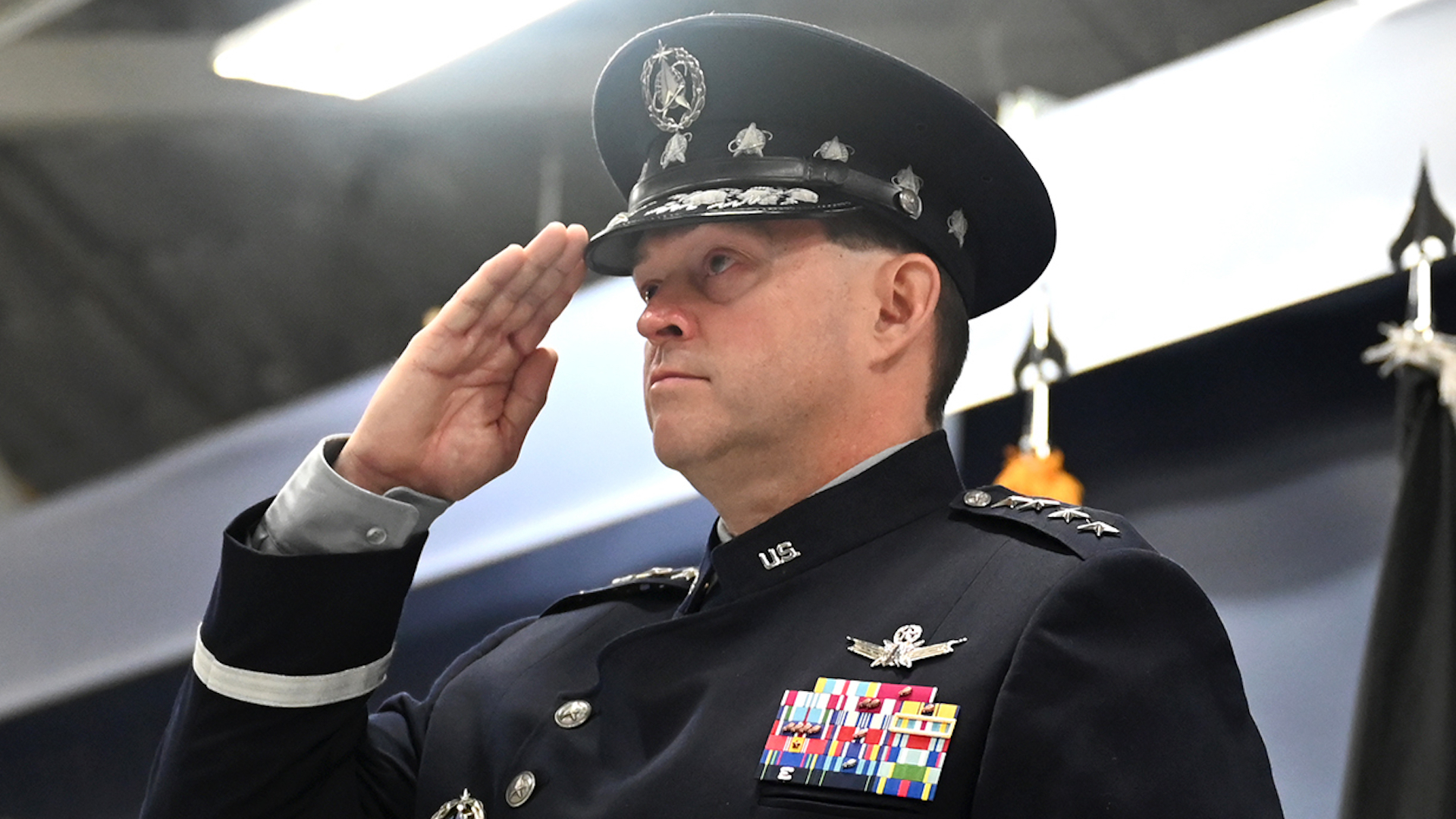

More than three years after President Donald Trump signed the Space Force into existence as the sixth branch of the U.S. armed forces, the fledgling service is still figuring out the best way to articulate exactly what it actually does all day.
In a memo sent to Space Force Guardians on Monday and first reported by Politico, Chief of Space Operations Gen. Chance Saltzman revealed that he had some “concerns” with the service branch’s current mission statement — namely, that it “does not reflect why the Nation has a Space Force and the vital functions Guardians perform.”
The Space Force’s current mission statement states: “The USSF is responsible for organizing, training, and equipping Guardians to conduct global space operations that enhance the way our joint and coalition forces fight, while also offering decision-makers military options to achieve national objectives.”
That 36-word declaration, Saltzman said, is “long and cumbersome.”
“How many Guardians can recite the current mission statement of the Space Force? My guess is very few,” he asked rhetorically — but it doesn’t fully reflect the scope of the Space Forces’ growing portfolio of functions and responsibilities.
“Guardians deliver capability,” Saltzman wrote, per Politico. “Guardians operate some of the most technologically advanced systems in the world. In doing so, they deter aggression and, should deterrence fail, protect U.S. interests with military force.
Subscribe to Task & Purpose Today. Get the latest military news, entertainment, and gear in your inbox daily.
Saltzman isn’t wrong. When the service isn’t reprimanding Guardians for saying “hey brother” or bailing on PT to get a PlayStation5, the Space Force is responsible for the space-based intelligence, communications, and GPS satellites that enable multi-domain operations across the planet, an essential role considering the evolving complexity of modern warfare.
“It’s not space for the sake of space,” as Aaron Bateman, an assistant professor of history and international affairs at George Washington University and former Air Force intelligence officer who studies space policy, told Task & Purpose last year. “It’s space for the sake of airmen, soldiers, sailors, and Marines who are in harm’s way.”
But as the U.S. military’s youngest branch, the Space Force has endured a well-documented perception gap among the American public, one marred by the similarly-named Netflix comedy series, its association with the controversial former president who midwifed it into existence, and frustration among its own ranks regarding the glacial pace of its policy development.
The solution? According to Air & Space Force Magainze, Saltzman is asking Guardians to submit their own nominations for a new mission statement, one that is “informative, memorable, inclusive,” and can “earn buy-in.”
“We can do better,” Saltzman said.
Of course, turning to U.S. service members for big solutions is a now-familiar practice for the Defense Department. Last year, the Pentagon sought to crowdsource a reason for being for the troubled littoral combat ship fleet from Navy commanders.
But given what happened when the Space Force crowdsourced the names of its members back in 2020, “doing better” doesn’t really seem like it’s in the cards — unless you want the service’s new mission statement to include “Spacey McSpaceface.”
The latest on Task & Purpose
- Special Forces soldiers reveal first details of battle with Russian mercenaries in Syria
- Who was General Mark Milley before he was ‘The Chairman’?
- What we know about the Marine veteran who killed Jordan Neely on the New York City subway
- Fort Benning, ‘home of the Infantry,’ is now Fort Moore
- Ukraine claims it has routed a Russian brigade near Bakhmut